8 Differences between Proxy server & Anonymizer
News21/11/2025, 18:124 min read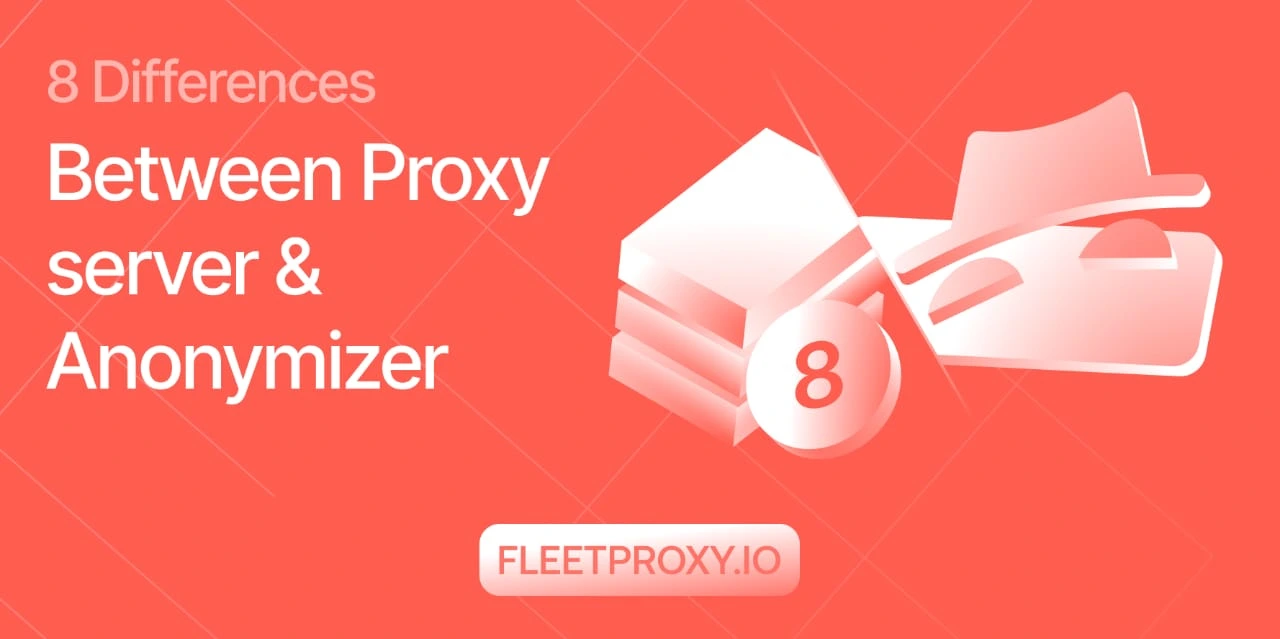
8 Differences between Proxy server & Anonymizer
In today’s connected world, protecting your online privacy isn't a choice, it's a necessity. Hackers, trackers, and region-blocking websites can make your browsing experience frustrating and risky.
Proxy servers and anonymizers to the rescue! While both help users stay anonymous online, they accomplish that in different ways.
Not sure which one would meet your needs? Keep reading as we explain 8 important differences between proxies and anonymizers so you can choose the best one and surf the internet securely.
1. Purpose
Proxy Server: A proxy server protects your IP by letting you view restricted websites. It’s perfect for streaming content that is blocked in your country and for safeguarding your browsing history when using public Wi-Fi.
It’s also helpful for checking how websites function in different locations or countries. A proxy acts like a ‘middleman’ that goes to a site and retrieves information for you, hiding your real IP in the process.
Anonymizer: An anonymizer also does a lot more than merely concealing your IP address. It disguises your traffic, obscures your digital footprint, and safeguards your online identity.
This is vital for people residing in censored countries, journalists, and for activists who wish to maintain total privacy. Think of it as a full online cloak that makes it extremely hard for anyone to tell what you’re doing.
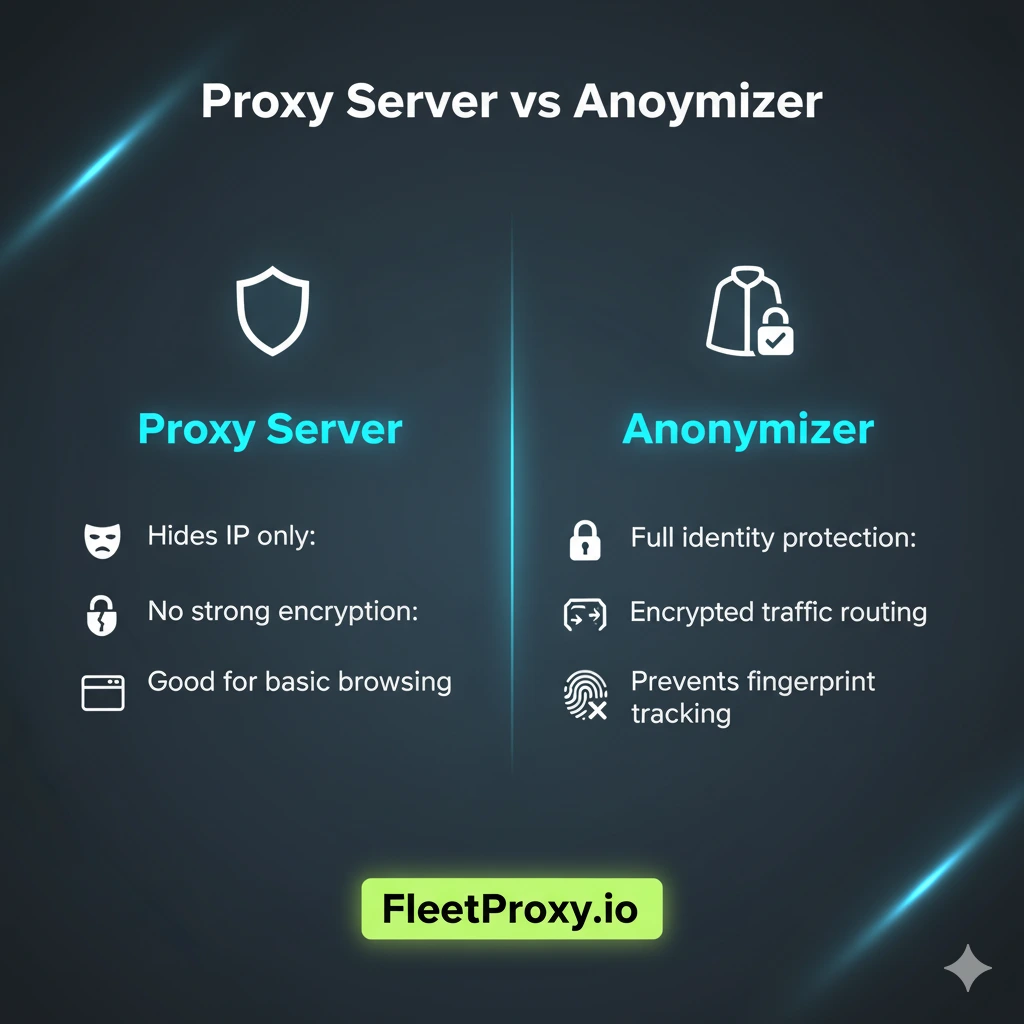
2. Level of Privacy
Proxy Server: While a proxy hides your IP address, it usually doesn't encrypt your data. This means your Internet Service Provider (ISP) or hackers can still monitor your online activity. Simpler proxies offer some level of privacy, but they don't completely protect you from surveillance.
Anonymizer: Anonymizers protect your privacy in a more advanced way. They hide your IP address, encrypt your internet traffic, and prevent websites from knowing what device or browser you're using. For example, tools like Tor prevent fingerprinting, something that proxies themselves can't do.
3. Security
Proxy Server: Proxy servers can keep your IP hidden. Free or public proxies don’t have strong protection, however. People with bad intentions can still view your data, putting you at risk of malware or phishing as well. Untrusted proxies can put your data at risk.
Anonymizer: Anonymizers employ powerful encryption and unique route planning techniques (such as Tor) to preserve your online activity almost entirely private. Your internet provider can't keep a record of your online activity and hackers find it extremely difficult to retrieve your data.
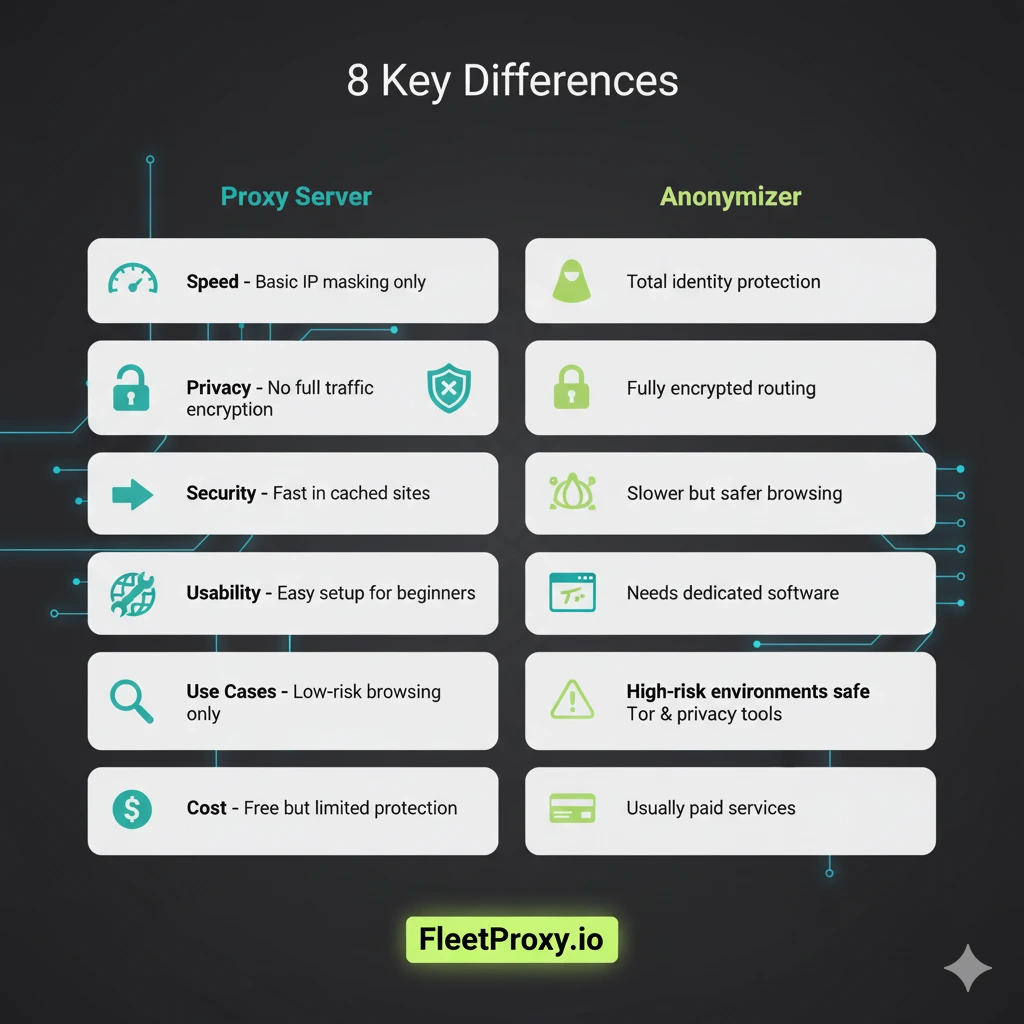
4. Speed
If a proxy saves a copy of a popular website, it will load much quicker. Free public proxies may slow down if a lot of people are using them. Paid proxies are typically quicker and more dependable.
Your data will be more secure with an anonymizer like Tor, but it will be slower. This is because it will be routed through more servers. Though it may take more time, it is worth it for the increased security.
5. Ease of Use
Setting up proxies is easy. Most browsers and apps connect to proxies without any additional configuration. There is no need to install any additional software. This is why proxies are great for beginners and casual users.
Anonymizers tend to require additional software or apps. Some, including Tor, may require additional configuration that can confuse beginners. Anonymizers and VPN services that are paid tend to have an easier setup.
6. Types of Proxy server & Anonymizer
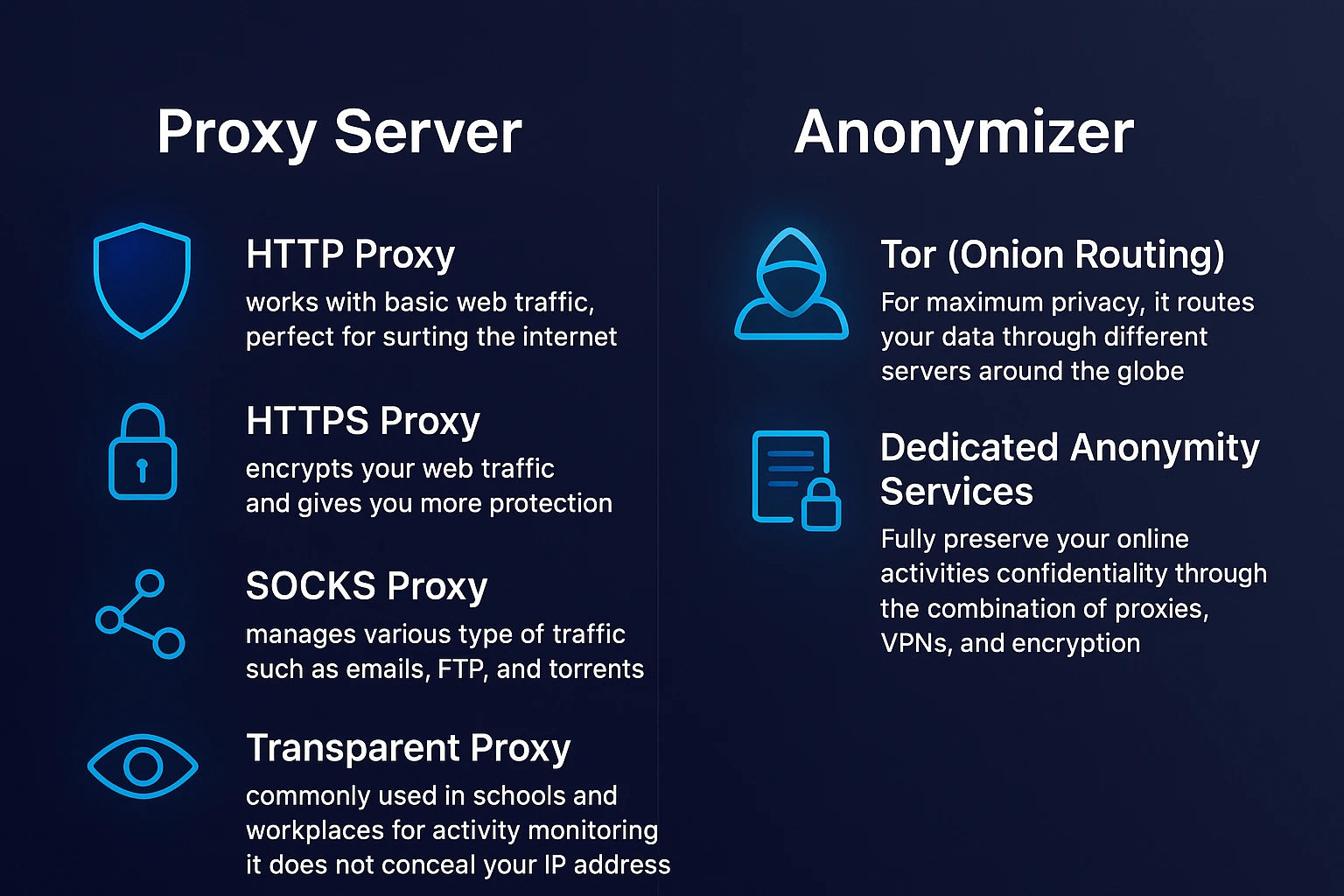
7. Use Cases
Proxy Server
• Access regionally restricted sites, including streaming services, fast!
• Bypass restrictions for some applications and websites.
• Ideal for low-risk activities such as casual browsing and checking location-based services.
Anonymizer
• Safely browse countries with internet restrictions.
• Protect your identity when performing sensitive activities online.
• Safeguard your privacy against tracking and digital fingerprinting.
8. Cost and Availability
• Proxy Server: Many people use proxy servers because “Proxy servers” depend on the demand and the prices can be “Proxy servers” provide better efficiency.
• Anonymizer: Most anonymizers require subscriptions for full privacy. Even though free anonymizers exist, they are typically slower, have fewer servers, and offer weaker security. For the safes anonymizers or VPNs are the best.
Conclusion
Proxy servers and anonymizers offer varying levels of protection to online privacy. For instance, proxies can offer quick and easy means for routing around blocks placed on websites and concealing an IP address, whereas anonymizers provide superior protection with cloaked, encrypted, and hard-to-trace connections.
Identify which option appropriately meets your privacy requirements and secure your online activities today.
More popular posts
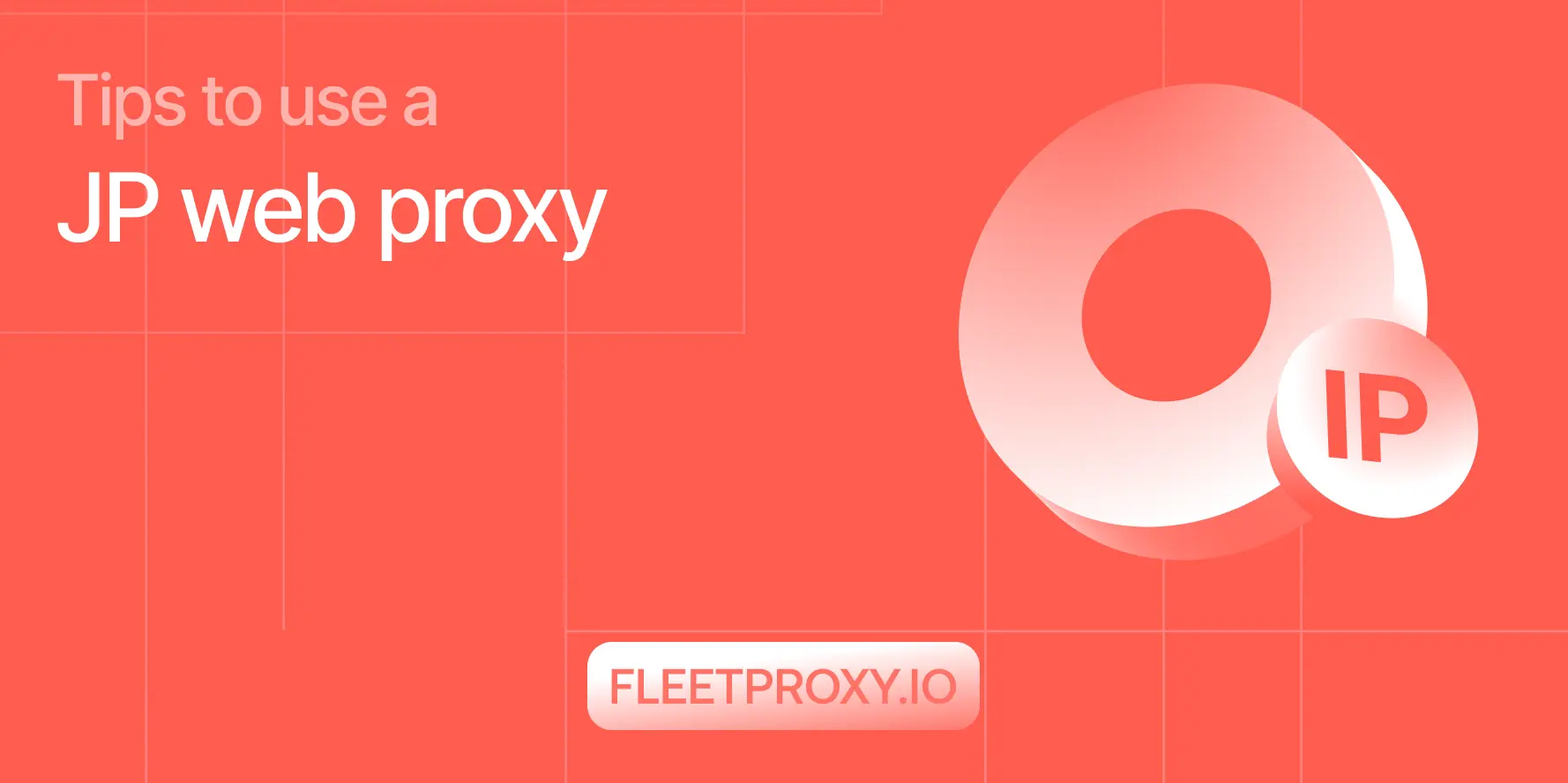
Tips to Use a JP Web Proxy to Browse Japanese Websites Safely.
Have you ever clicked on a link to an exciting Japanese video, a regional news article, or a unique e-commerce site, only to be met with a frustrating error message? "This content is not available in your region." This digital barrier, known as geo-blocking, is a common hurdle for international fans of Japanese culture, researchers, and expats alike.
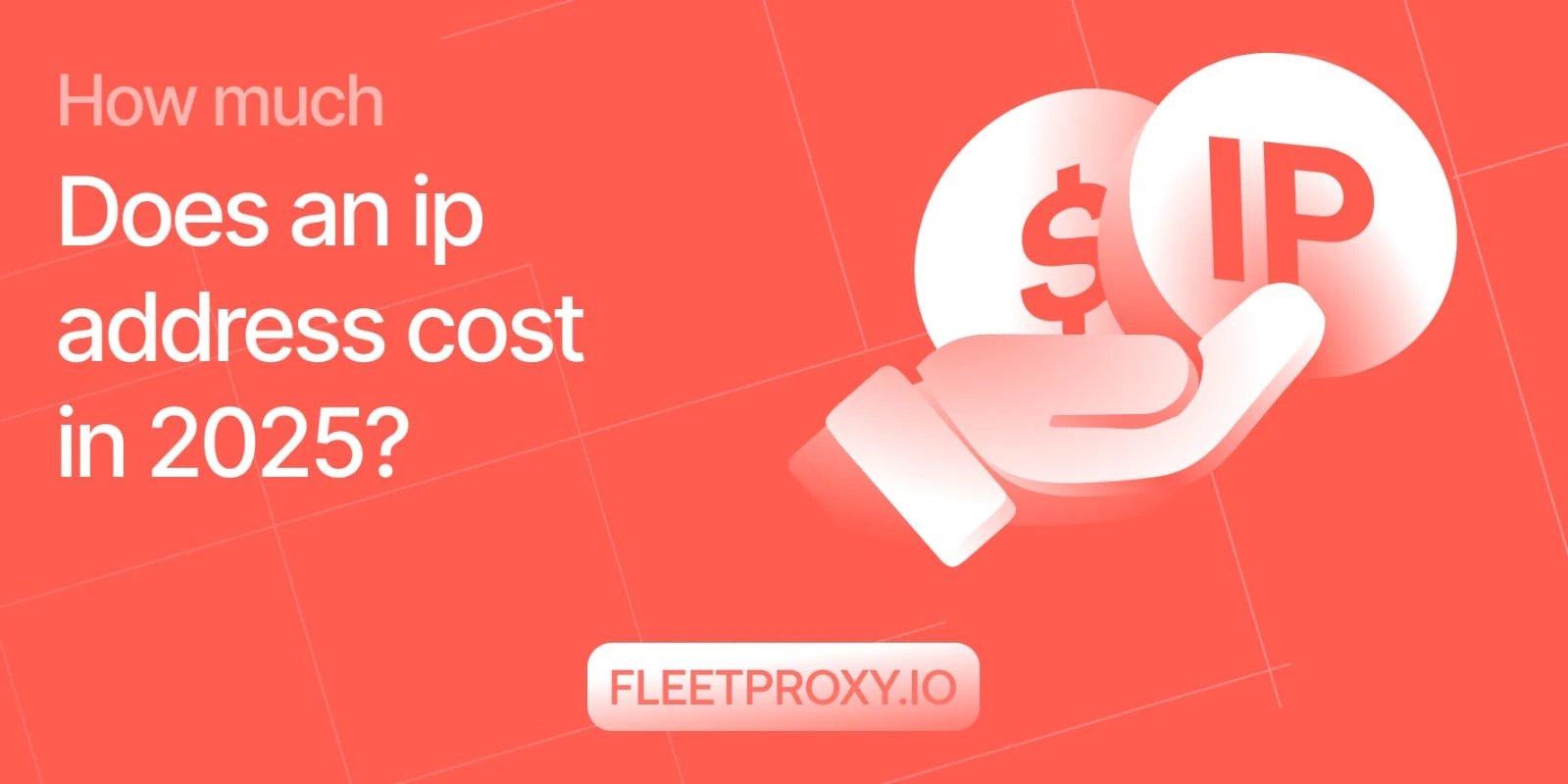
How much does an IP address cost in 2025?
The IP address cost in 2025 varies across regions. Larger blocks are cheaper per IP but costly overall, while smaller blocks offer more stability, clarity and security. No matter the option, understanding these trends helps businesses make smarter and more cost-effective decisions
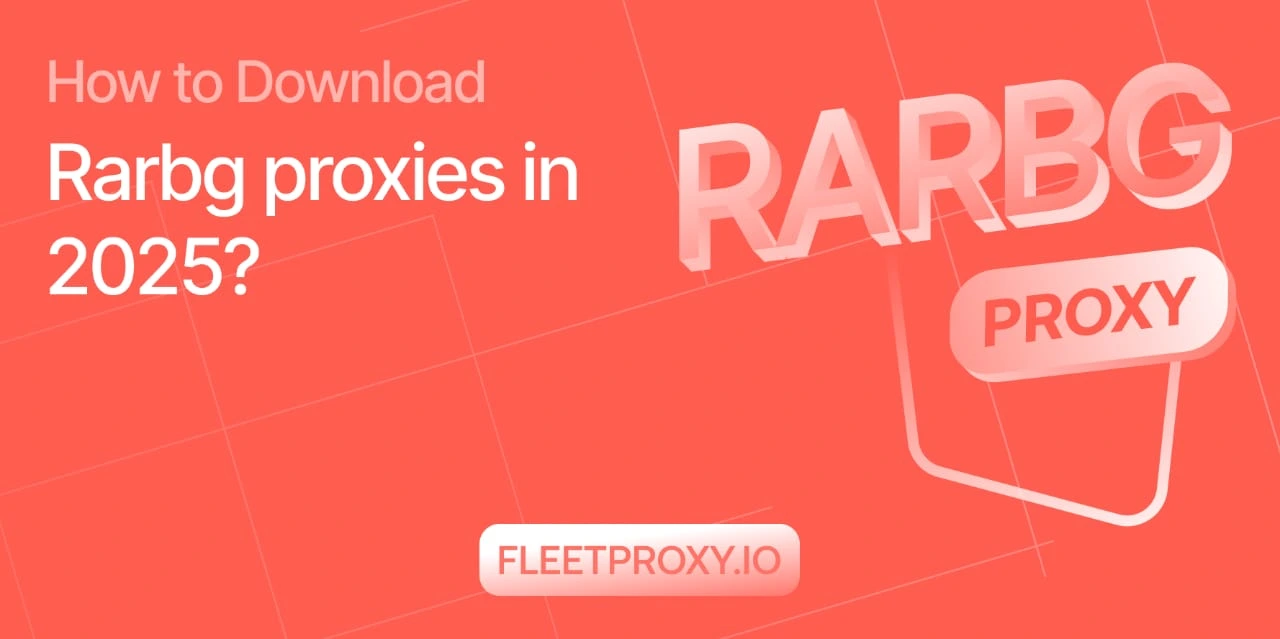
How to Download Rarbg Proxies in 2025?
When RARBG went offline, it was like an era ended for torrent fans. RARBG was the most trusted place to get high-quality movies, TV shows, and games for years and it was free of the usual clutter and fake links.